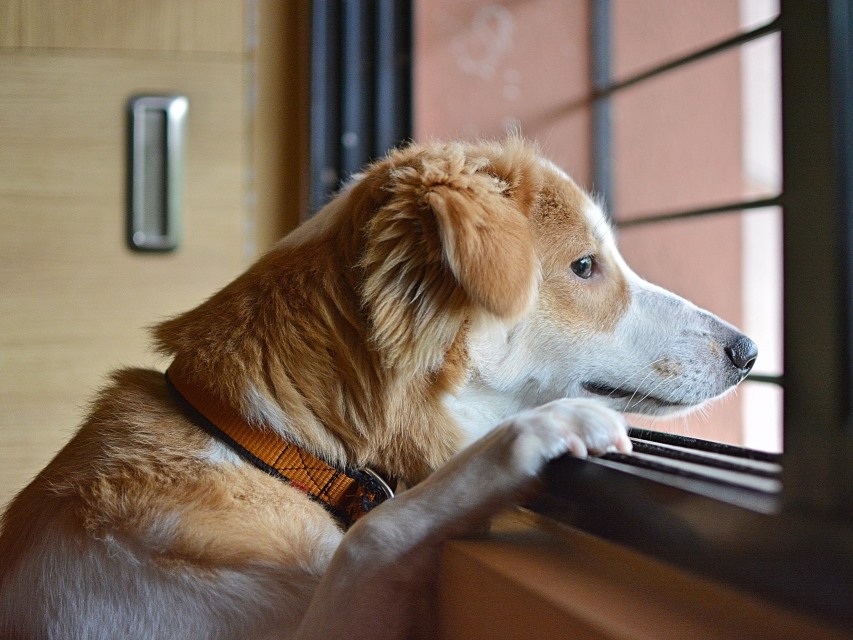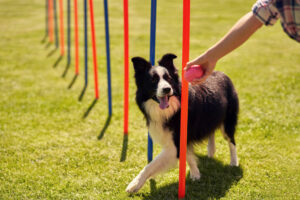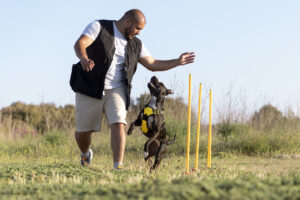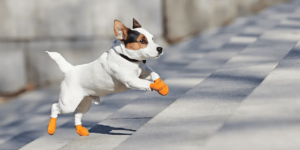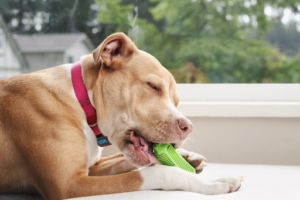Like humans, dogs can suffer from separation anxiety. Separation anxiety is the fear and distress that a dog feels when separated from its owner. It can lead to destructive behavior, which is problematic for both the owner and the dog.
In this post, we’ll outline a few tips on how to prevent separation anxiety in dogs.
Tips to Prevent Separation Anxiety in Dogs
If your dog is showing signs of anxiety, here are some things you can do to help.
Give Them Regular Exercise
Although exercise cannot cure separation anxiety, it can help treat and prevent it.
First, ensure that your puppy gets lots of age-appropriate and breed-appropriate physical activity. This is especially true for large, high-activity dogs.
Regular exercise can help prevent boredom, which can lead to destructive behavior. Exercise also releases endorphins and helps reduce stress in your pup.
Some dog exercises you can try include the ones featured in this video:
Create a Comfortable Environment
Make sure that your pup has all the basics for comfort and safety. Provide plenty of food, water, toys, and a comfortable bed. Ensure that your pup has access to an area where they can hide or seek comfort when feeling anxious.
Crate Training
It goes without saying that a crate is your dog’s safe haven. It’s a crucial training tool and the answer to many puppy problems.
When used properly–that is, not leaving them inside for more than it is neither harsh nor harmful. Instead, it may provide a secure, peaceful spot for your pup to unwind.
The goal is to train them to link their crate with nice things like chew toys and food-releasing puzzle toys, so they will enjoy spending time inside.
Desensitization
Desensitization is a procedure that involves exposing the pet to a stimulus that would typically induce an unwanted reaction at such a low level that there is no response. This process helps the pet to become accustomed and comfortable with a situation they may have previously been fearful of.
You should do this gradually, ideally over a few weeks. If you decide to pursue this therapy method, continue with caution because there is a potential that separation anxiety can increase. Keep close track of your dog’s reactions to see if it’s genuinely working or if it’s making matters worse.
Medication
Sadly, training and counter-conditioning aren’t always enough. In some cases, medication may be necessary to prevent separation anxiety in dogs.
Some veterinarians recommend medication used to treat depression, anxiety, and panic disorders. Remember, always consult your veterinarian before giving any medication to your pup.
Conclusion
Separation anxiety can be a real challenge to prevent and treat. Luckily, with the right knowledge and techniques, you can help prevent separation anxiety in dogs. Knowing the best treatment approaches means ensuring a higher quality of life for both of you.
If you’re looking for more information on dog care, make sure to check out the PetFitness blog!

